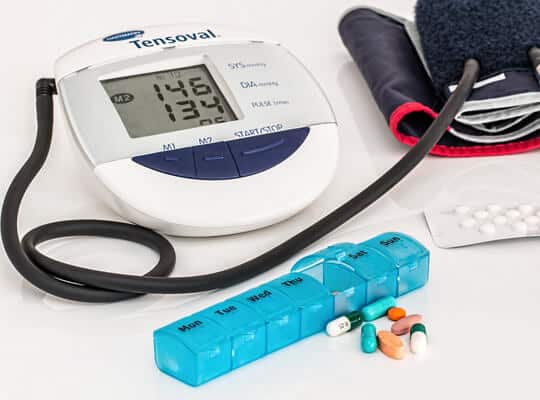Free Guide: Importance of Health Check Up
Table of Contents
The best investment you can make in yourself is a check-up that will only take 1 day. In the comfort of a 5-star hotel, we recommend you to have this valuable experience with expert doctors and professors ın Turkish Republic of North Cyprus. Let’s take a look at the importance of health check up.
What is check up?
Early diagnosis and treatment is the most important step in preventing the progression of diseases. Maintaining health and detecting disease risks in a healthy individual is only possible with regular check-ups. Many people apply for a check-up when they feel any changes or visible signs in their health. Check-ups are procedures not only to detect medical problems, but also to identify risk factors and diseases before they start to cause problems. Check-ups also aim to help individuals to make lifestyle changes for a lifelong healthy life. Check-ups are not always 100% accurate, but regular check-ups are still very valuable than none at all.
Even if it feels healthy, regular check-ups should not be neglected. Check-ups are important for;
Checking existing or emerging medical problems,
Assessing your risk of future medical problems
Guiding you to lead a healthy lifestyle,
Keeping vaccines up to date.
What kind of tests are included in the check up?
- With regular check-ups, it is possible to detect some possible serious diseases that may occur in the future and that can be easily treated at an early stage. In advanced stages, the treatment of diseases becomes relatively difficult.Tests that should be in a standard check-up are:
- blood count,
- blood tests evaluating organ functions (liver, kidney, etc.),
- sedimentation, cholesterol and lipid levels,
- thyroid (goiter) test, h
- hepatitis (jaundice) test,
- complete urinalysis,
- whole abdominal ultrasonography,
- chest X-ray,
- electrocardiography
- blood in stool.

What screening tests might be performed?
Screening tests are widely used in medicine to evaluate the likelihood that members of a defined population have a particular disease. The goal of screening tests is to detect lifestyle changes early enough, or surveillance, to reduce the risk of the disease or treat it most effectively.
Applied screening tests:
Cholesterol: Your body’s cell membranes help producing certain hormones and vitamin D. A blood test is used to screen for cholesterol coming into the blood from food and liver. If the cholesterol is high in the test results, it can be said that the risk of cardiovascular disease is higher than those whose cholesterol is in the normal range.
Stool occult blood test: Stool occult blood is found by a microscope or using chemical tests for blood (hemoglobin) in the stool. Blood in the stool is a condition that can cause colorectal cancer. For this reason, three stool samples are taken and a screening test is performed. The samples are checked for blood under the microscope.
Pap test: Pap tests or Pap Smear are cell samples taken from your cervix. The sample taken is examined under a microscope to determine whether there is any problem that may mean cervical cancer.
Prostate specific antigen (PSA): This blood test measures the levels of prostate specific antigen (PSA) in the blood. If there is prostate cancer, PSA levels may give higher-than-normal results.
Mammogram: It recommends getting a mammogram for breast cancer every one or two years after the age of 50. This test is a procedure performed in conjunction with a clinical breast examination.
Diabetes or Prediabetes: It is recommended that all adults be screened for diabetes or prediabetes from the age of 45. It doesn’t matter if you are overweight or underweight. This screening is recommended for everyone from the age of 45, regardless of weight. Screening is also recommended if you are overweight, obese, and have one or more risk factors for diabetes.
The benefits of regular check-ups
- Regular check-ups enable doctors to detect signs of illness that even patients may not be aware of. With routine scans, the doctor can diagnose potentially serious or life-threatening conditions. Thus, all kinds of risks can be prevented before it is too late or before the disease reaches advanced levels.
- Some life-threatening diseases can progress slowly in the body before they produce physical symptoms. With early detection by check-up, the person has a better chance of getting the right treatment right away and having early access to options that can speed up the healing process.
- One should never neglect their health. Thanks to regular health checks, individuals can monitor their physical, mental and emotional health. Thus, they can take action for their own health and make wise decisions.
- Develop a trust relationship with the patient and doctor through regular physical exams and screenings. It builds trust between them, enabling them to have open and honest conversations about their medical history or condition. This may pave the way for more effective medical management and treatment.
When do adults need a check up?
Routinely evaluating risk factors for various diseases, screening for cancer and other diseases will eliminate health problems in your life. For this reason, regular check-up controls should not be interrupted. Heart disease, diabetes, and some cancers can often be detected in the early stages and treatment can be more successful. You may be more likely to get the disease if you have high risk factors, such as a family history of the disease. Regular check-ups can help you catch the early warning signs.
How often adults should have check-ups depends on age, risk factors, and current health status. Generally, if you are under the age of 50 and in good health, it is recommended to have check-up every three years, while after the age of 50 it is recommended to have a check-up once a year.

How often should adults get a checkup?
Generally, healthy people in their 20s are recommended to have check-up are in two to three years. A physical examination is recommended every two years for those in their 30s and 40s, and annually for those 50 and older. In addition to check-up, regular health screenings such as skin checks, pap smear, mammogram and colorectal cancer screening should be done.
For More Information
Please do not hesitate to contact us for more information on the subject.



